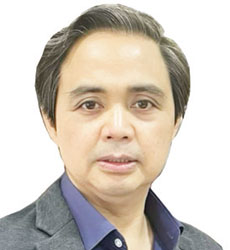WHEN the judicial system is used against enemies to achieve warlike objectives through legal means, it is known as "lawfare," from the portmanteau "law" and "warfare." Autocratic leaders like Russia's Vladimir Putin, Singapore's Lee Kuan Yew or Turkey's Recep Tayyip Erdogan are known to wield lawfare by weaponizing the legal systems against political dissidents. In liberal democracies, the instrumental use of legalities to harass critics and prosecute criminals was openly tolerated. In the 1930s, the US Treasury utilized it as a strategy to ultimately bring down the elusive Chicago crime boss Al Capone.
President Rodrigo Duterte is infamous for such "lawfare" tactics by fabricating evidence and turning coerced witnesses against his staunch opponents. His government was successful enough to detain a senator, depriving her of her liberty for seven years on trumped-up charges. Now the tables are turned. It is the former president who's at the receiving end of lawfare. The House of Representatives convened the quad committee hearings to deploy legal and constitutional powers to pin down Duterte. Its lawfare was persuasive enough to sway President Ferdinand Marcos Jr. into allowing the International Criminal Court (ICC) to enter Philippine jurisdiction.
Register to read this story and more for free.
Signing up for an account helps us improve your browsing experience.
ContinueOR
See our subscription options.


